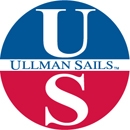
|
|
|
Scuttlebutt News: An explanation of the rules that govern the America’s Cup By John Rousmaniere The crux of the debate over the America’s Cup concerns one paragraph in the cup’s basic rules, called the deed of gift because the document was handed over to the New York Yacht Club with the cup by the owners of the yacht America. The paragraph breaks down into four sections. The first two lay out the qualifications for a challenging yacht club. The third section defines the type of boat, and the fourth insists that this be a race between yacht clubs representing different countries and boats built in those countries. Throughout you see that the crucial actor is the yacht club, not an individual. This is a hard thing for individualists of the modern era to fully appreciate, but the key element is the yacht club, not the boat’s owner or sailors. The original deed of gift of 1852, drafted by George L. Schuyler of the New York Yacht Club (and one of the owners of the yacht America), said that the yacht club must be “organized.” This means that the challenge cannot come from an individual but from an organization. A yacht club holds the cup, and a yacht club from another country challenges for the cup. Yacht clubs as we know them today were quite rare back then. Some clubs then were extensions of their commodores’ personalities, others were nothing more than a yacht that the owner rented out to clients. But the New York Yacht Club was something very different. The club was more important than its members, and this was what the donors expected of America’s Cup’s qualifiers. So “organized” sets a high standard. The challenger has to be an entity with a history, a structure, some continuity from year to year, a scheduled event, and the other elements that are commonly understood to be part of a true organization. The language saying that a yacht club must be “incorporated, patented, or licensed” was added in the second deed of gift in 1881, probably to give it legal precision. Still, there is room for disagreement, as today’s dispute testifies. The Royal New Zealand Yacht Squadron (which has been racing for the cup for 20 years) is not “incorporated, patented, or licensed by the legislature, admiralty, or other executive department” – but it surely is organized and not operating at the whim of an individual. The second qualifier in the first section of this paragraph is that the challenging yacht club (a) has to run an annual regatta that (b) takes place on salt water, either the ocean or “an arm of the sea,” like a bay or a river estuary. The first, (a), is a screening test. If the club runs an annual regatta, it’s an organized yacht club. If it does not have an annual regatta, it is not one, at least under the meaning of the deed. The deed does not say what size or type boats must be sailed in that regatta, only generally where the race must take place. The “arm of the sea” provision was added in 1881 to keep away a stubborn Canadian challenger who came down to New York from fresh-water Lake Ontario. This sailor, named Cuthbert, challenged in 1876 from a yacht club in Toronto and did poorly. He then insisted on returning in 1881 with a new boat from a small club that he may have helped found, and he did poorly again. When Captain Cuthbert announced that he would challenge a third time in the same boat in 1882, George Schuyler (knowing that the New York Yacht Club would have to accept the challenge) amended the deed to discourage him from challenging. He added the “arm of the sea” provision, which did not apply to American lakes, and he also produced a new rule barring a losing boat from returning until two years had elapsed. The main point was that this was to be an event for ocean-going yachts. This provision was expanded 20 years ago, making Lake Michigan “an arm of the sea” to allow a challenge from Chicago. That yacht club could have satisfied the original provision just as Alinghi has, by holding its annual regatta on salt water. So this paragraph lays out the qualifications for a challenger. A challenge must come from an organized yacht club that holds an annual regatta that must be on salt water. It’s that simple. It seems that the importance of these points may not have been fully grasped by the Alinghi group and the Spanish yacht club whose challenge they first accepted. Perhaps in their rush to reach a desired goal (which may be worthwhile), they were a little careless, even cavalier, in following the steps laid out in the deed of gift. So it is that on Monday, October 22, 2007, a judge and a great many high-priced lawyers will gather in a New York courtroom to argue about the meaning of Schuyler’s clear words. To read the actual Deed of Gift, click here |

















|

